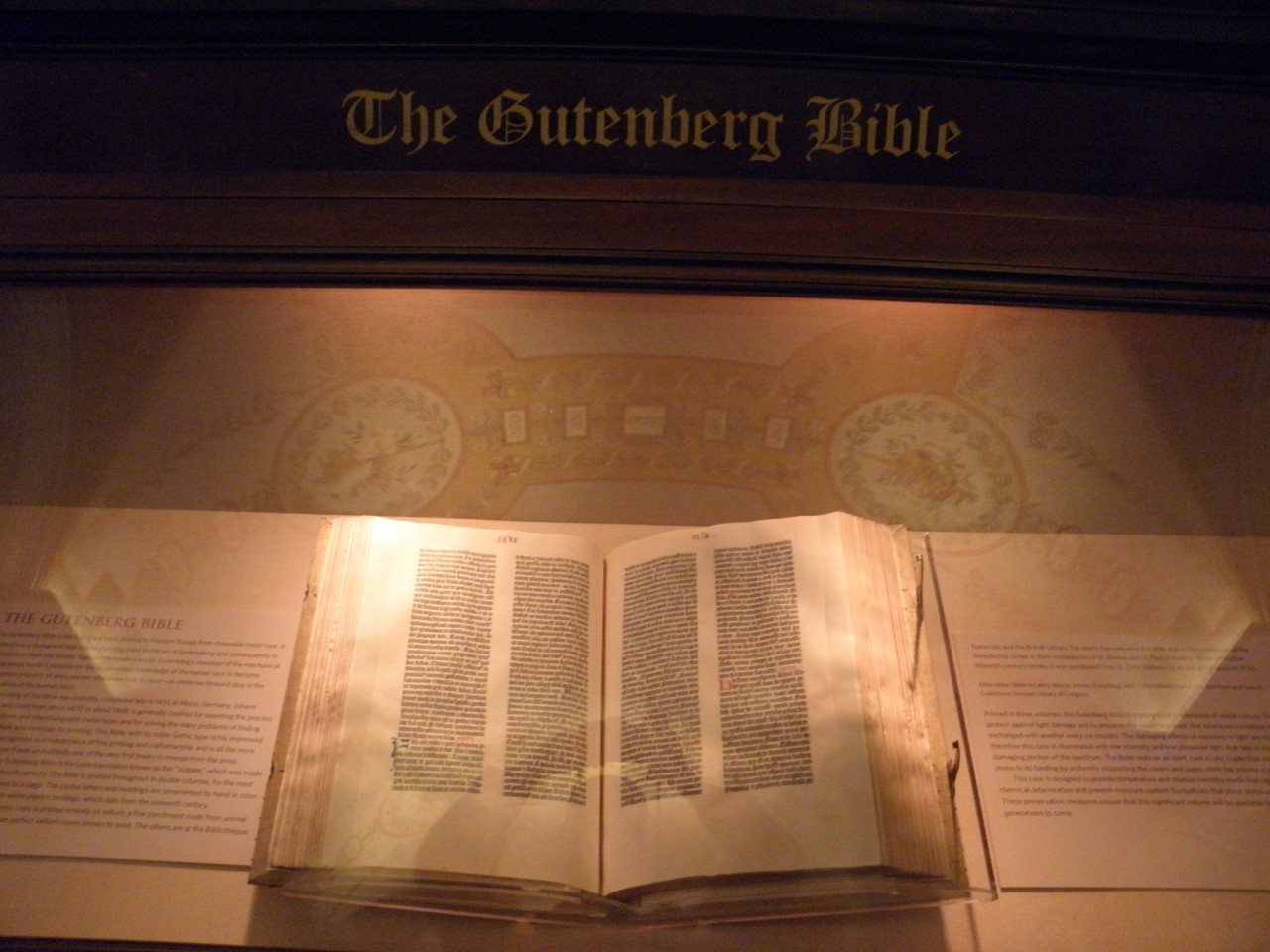The Gutenberg Bible is the first great book printed in Western Europe from movable metal type. It is therefore a monument that marks a turning point in the art of bookmaking and consequently in the transition from the Middle Ages to the modern world. Gutenberg’s invention of the mechanical printing press made it possible for the accumulated knowledge of the human race to become the common property of every person who knew how to read—an immense forward step in the emancipation of the human mind.
The printing of the Bible was probably completed late in 1455 at Mainz, Germany. Johann Gutenberg, who lived from about 1400 to about 1468, is generally credited for inventing the process of making uniform and interchangeable metal types and for solving the many problems of finding the right materials and methods for printing.
This Bible, with its noble Gothic type richly impressed on the richly impressed on the page, is recognized as a masterpiece of fine printing and craftsmanship and is all the more remarkable because it was undoubtedly one of the very first books to emerge from the press.
The text of the Gutenberg Bible is the Latin translation known as the “Vulgate,” which was made by St. Jerome in the fourth century. The Bible is printed throughout in double columns, for the most part, with forty-two lines to a page. The capital letters and headings are ornamented by hand in color. The three volumes are in white pigskin bindings, which date from the sixteenth century.
The Library of Congress copy is printed entirely on vellum, a fine parchment made from animal skin, and is one of only three perfect vellum copies known to exist. The others are at the Bibliothèque Nationale and the British Library. For nearly five centuries the Bible was in the possession of the Benedictine Order in their monasteries of St. Blasius and St. Paul in Austria. Along with other fifteenth-century books, it was purchased from Dr. Otto Vollbehr by an act of Congress in 1930.
https://www.loc.gov/exhibits/bibles/the-gutenberg-bible.html


